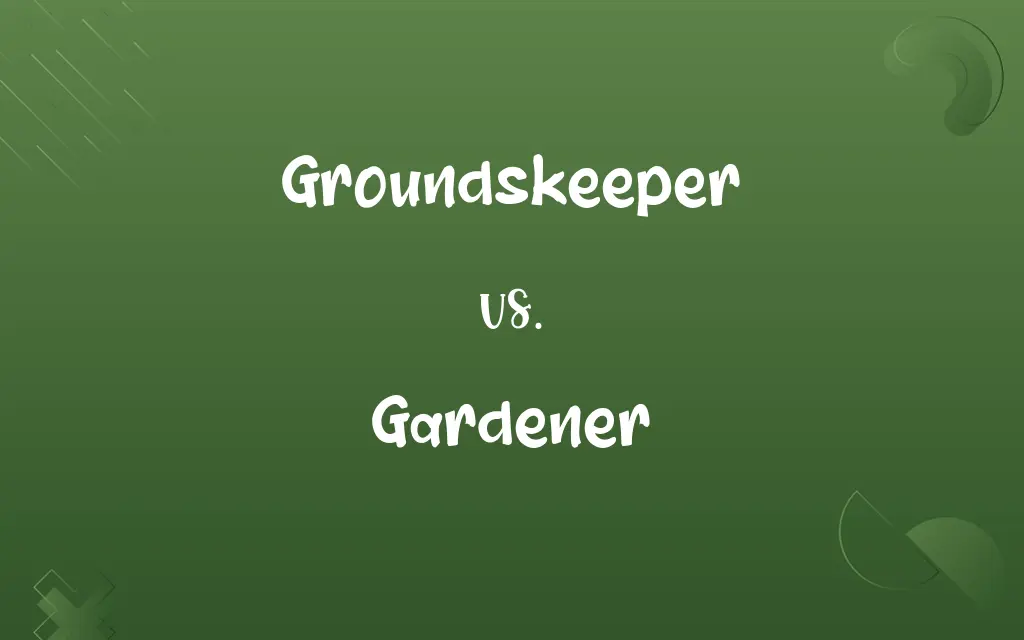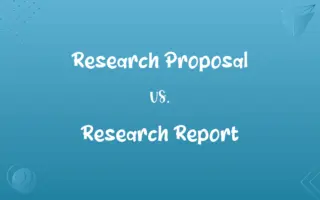Chemical Reaction vs. Physical Reaction: What's the Difference?
Edited by Janet White || By Harlon Moss || Updated on October 8, 2023
Chemical reactions alter substances at a molecular level, forming new compounds. Physical reactions change the form but not the identity of a substance.

Key Differences
Chemical reactions involve the breaking and forming of chemical bonds, leading to the creation of entirely new substances with distinct physical and chemical properties. Physical reactions, conversely, do not give rise to new substances but merely change the physical state or appearance of the original substance, maintaining its inherent properties.
In a chemical reaction, the reactants interact to create one or more different products, often releasing or absorbing energy in the process. However, in a physical reaction, the substance undergoing change might shift between states, like from a liquid to a solid, but its molecular structure remains unchanged and no new substances are formed.
Chemical reactions typically are irreversible under standard conditions, meaning they cannot simply be undone by reversing the applied conditions. Physical reactions, on the other hand, are generally reversible, allowing the substance to revert to its original state by altering conditions like temperature or pressure.
One example of a chemical reaction is the burning of paper, where the paper (cellulose) reacts with oxygen in the air to form new substances: carbon dioxide and water. In contrast, melting ice exemplifies a physical reaction as the water molecules rearrange from a solid lattice structure to a liquid state, but no new substance is formed.
Comparison Chart
Word Count
Two
Two
ADVERTISEMENT
Syllable Count
Five
Five
Letter Count
Sixteen
Seventeen
Usage in Literature
Often in scientific contexts
Often in scientific contexts
Common Abbreviation
Not commonly abbreviated
Not commonly abbreviated
Chemical Reaction and Physical Reaction Definitions
Chemical Reaction
Chemical reactions involve the rearrangement of atoms to create new compounds.
Photosynthesis is a chemical reaction that transforms carbon dioxide and water into glucose and oxygen.
ADVERTISEMENT
Physical Reaction
A physical reaction entails a change in the state or form of a substance without altering its chemical identity.
The freezing of water into ice is a physical reaction, as it alters state but not composition.
Chemical Reaction
Chemical reactions can be categorized into various types, such as synthesis, decomposition, and displacement reactions.
The corrosion of iron is a chemical reaction where iron reacts with oxygen to form rust.
Physical Reaction
Physical reactions do not involve changes in the atoms’ arrangement or the formation of new bonds.
The chopping of vegetables is a physical reaction as it alters shape but not the chemical structure.
Chemical Reaction
A chemical reaction is a process where reactants convert into products with altered chemical properties.
The reaction between hydrogen and oxygen to form water is a vital chemical reaction.
Physical Reaction
Physical reactions include changes like dissolution, sublimation, and phase transitions without forming new substances.
The sublimation of dry ice into carbon dioxide gas is a physical reaction.
Chemical Reaction
Chemical reactions obey the law of conservation of mass, maintaining total mass before and after the reaction.
In the chemical reaction of baking soda and vinegar, the total mass remains constant throughout the reaction.
Physical Reaction
Physical reactions generally involve changes that are reversible by altering physical conditions.
The condensation of water vapor into liquid water is a reversible physical reaction.
Chemical Reaction
A chemical reaction may involve the absorption or emission of energy, often in the form of heat, light, or sound.
The combustion of gasoline in an engine is a chemical reaction that releases energy in the form of heat and light.
Physical Reaction
In a physical reaction, the molecular structure of the substance remains intact throughout the change.
The dissolution of salt in water is a physical reaction since it can be recovered through evaporation.
FAQs
Are chemical reactions reversible?
While some chemical reactions are reversible under certain conditions, many are not easily reversed.
Can physical reactions be easily reversed?
Yes, physical reactions are generally reversible by changing conditions like temperature or pressure.
Can physical reactions form new substances?
No, physical reactions only change the state or appearance of a substance without forming new substances.
Do chemical reactions always involve energy changes?
Yes, chemical reactions often involve energy changes, either absorbing or releasing energy.
What’s an example of an undesirable physical reaction?
Food spoilage, like an apple browning, involves undesirable physical and chemical reactions.
Can a substance undergo both chemical and physical reactions simultaneously?
Yes, a substance can undergo both, like melting and burning plastic.
What’s an example of a chemical reaction in everyday life?
Rust forming on iron is a common chemical reaction encountered daily.
Can physical reactions be demonstrated in a lab?
Absolutely, for example, melting ice can demonstrate a physical reaction in a lab setting.
Why do chemical reactions occur?
Chemical reactions occur due to the rearrangement of atoms to achieve lower energy states or greater stability.
Can physical reactions occur in living organisms?
Yes, physical reactions, like water evaporating from skin, occur in living organisms.
Does breaking glass represent a chemical or physical reaction?
Breaking glass is a physical reaction as it alters shape but not chemical composition.
Can the rate of chemical and physical reactions be altered?
Yes, factors like temperature, pressure, and catalysts can affect the rate of both chemical and physical reactions.
Does a physical reaction involve changes in color?
Typically no, physical reactions do not involve color changes as no new substances are formed.
How are chemical reactions utilized in industries?
Chemical reactions are fundamental in industries, such as producing plastics, medicines, and fuels.
What initiates a chemical reaction?
A chemical reaction begins when reactants come into contact and react to form products due to collisions between particles.
What's an example of a fast chemical reaction?
The explosion of fireworks is an example of a rapid chemical reaction.
What's a real-life consequence of a chemical reaction?
The chemical reaction in batteries provides electrical energy to power devices.
Are molecules altered in a physical reaction?
No, physical reactions don’t alter the molecular structure of a substance.
Can a physical reaction occur without changing the state of a substance?
Yes, physical reactions like dissolving sugar in water don’t change the state of the dissolved substance.
Is fire a result of a chemical reaction?
Yes, fire results from combustion, which is a chemical reaction between a fuel and oxygen.
About Author
Written by
Harlon MossHarlon is a seasoned quality moderator and accomplished content writer for Difference Wiki. An alumnus of the prestigious University of California, he earned his degree in Computer Science. Leveraging his academic background, Harlon brings a meticulous and informed perspective to his work, ensuring content accuracy and excellence.
Edited by
Janet WhiteJanet White has been an esteemed writer and blogger for Difference Wiki. Holding a Master's degree in Science and Medical Journalism from the prestigious Boston University, she has consistently demonstrated her expertise and passion for her field. When she's not immersed in her work, Janet relishes her time exercising, delving into a good book, and cherishing moments with friends and family.






































































